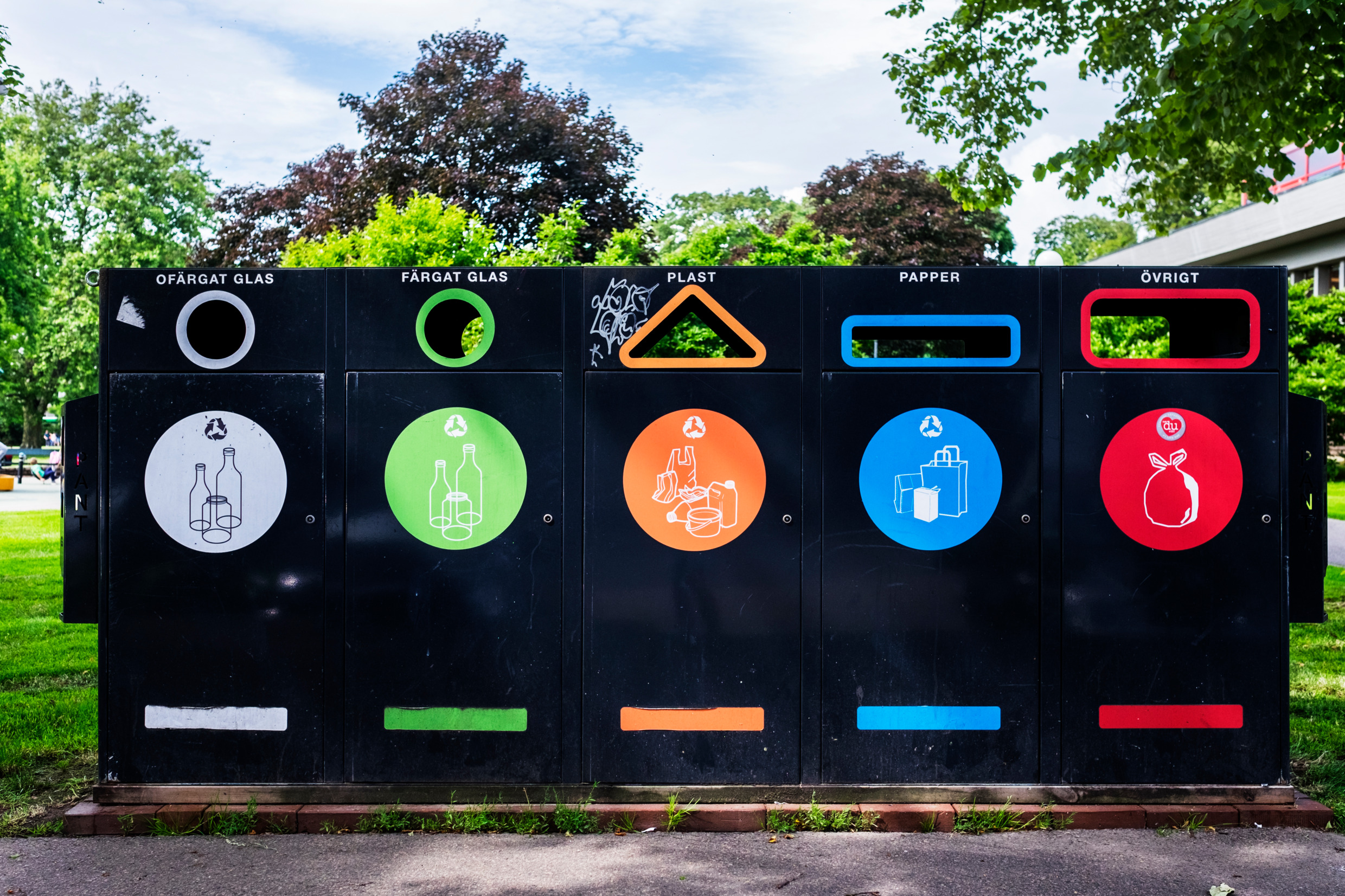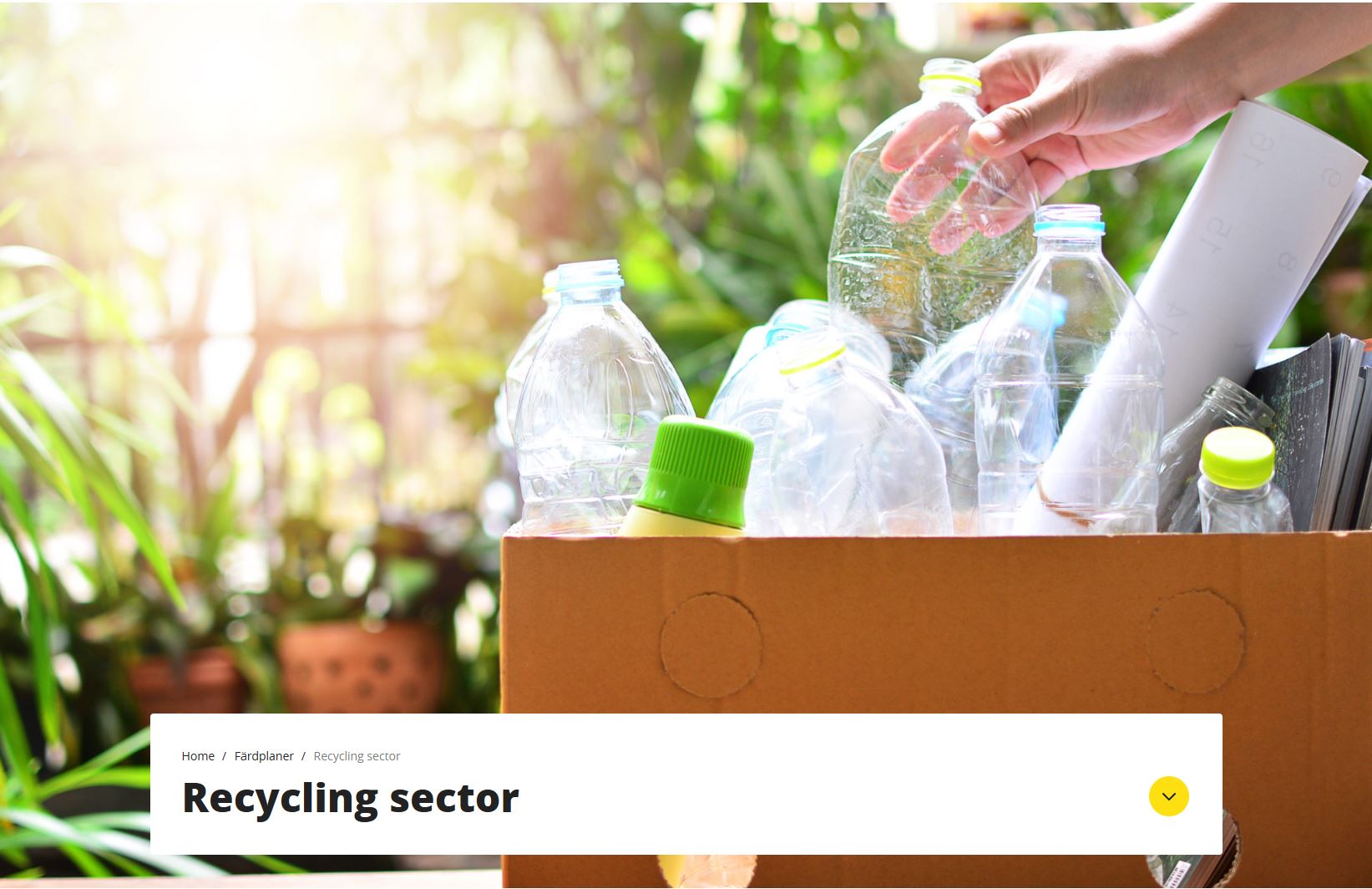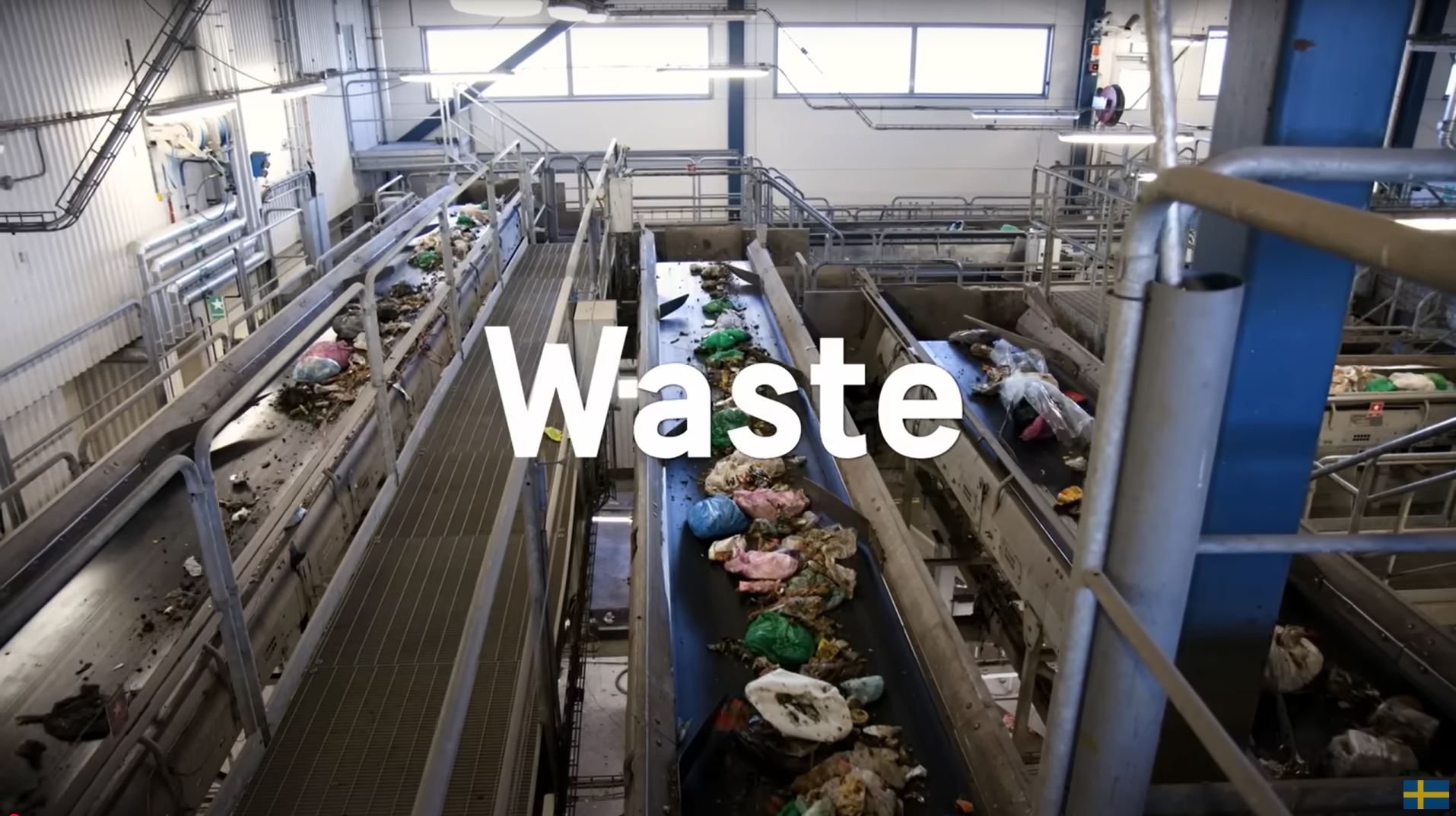Circularity & waste
Climate solutions – Circularity & Waste
The waste sector contributes to about 3% of global greenhouse gas emissions. With proven technology, strong policy frameworks and economic incentives Sweden has turned waste into a valuable resource.
From waste to value
Applying circular principles throughout a product’s lifecycle, from design and use to lifetime and end-of-life, cuts demand for virgin materials and lowers emissions across value chains. This is particularly true within the waste sector. Scaling circular solutions also delivers co-benefits such as reduced pollution, better public health, and increased climate resilience.
Our journey – your journey
Since 1990 emissions in the Swedish waste sector have fallen by 77% due to improved methane recovery from landfills, reduced organic waste disposal, and investments in recycling and waste-to-energy. These efforts are supported by strong policy frameworks and economic incentives.
Climate solutions across the board
Swedish firms aim to share proven circular solutions internationally to accelerate the transition towards a low-waste, resource-efficient future. The offer prioritises waste prevention, reuse, and high-value recycling across value chains, reinforcing both environmental and economic resilience. Circularity & waste solutions include:
- Circular Business Models – Swedish companies are creating and embedding circularity throughout product lifecycles, including product-as-a-service models, industrial symbiosis, and secondary material marketplaces. Digital tools such as lifecycle assessments and supply chain audits enable better integration across value chains, enhancing resource efficiency and climate resilience, and reducing pressure on waste systems. These models help reduce costs, support sustainable consumption, and enhance competitiveness. Circular models also support climate adaptation.
- Sustainable Materials and Eco-Design – Eco-design initiatives support the development of more durable, repairable, and recyclable products. Innovations include bio-based and compostable materials, chemical recycling, and microplastic capture technologies that help reduce pollution. These approaches reduce pollution, improve product lifespan, and help businesses align with regulatory and consumer trends towards sustainability, enhancing market access and long-term growth.
- Recycling and Material Recovery – Swedish firms operate advanced sorting and urban mining systems that recover high-value materials from residual waste, using technologies such as near-infrared scanning. These systems reduce incineration, increase reuse, and cut emissions from virgin resource extraction. They also enhance resilience by localising material supply and lowering exposure to resource shocks – while creating new value chains.
- Wastewater and Water Management – Solutions for water management include advanced purification systems, safe water reuse, and climate-adaptive drainage infrastructure that reduces flood risk and environmental discharge. These integrated systems build urban and industrial resilience to climate extremes, safeguard sanitation infrastructure, and reduce long-term costs.
- Waste-to-Energy and Landfill Gas Recovery – Waste-to-energy (WTE) systems convert non-recyclable waste into electricity and district heating, with the incorporation of carbon capture set to drastically reduce emissions. Landfill methane is recovered for biogas, and biochar from organic waste sequesters carbon and improves soil health. These technologies reduce emissions, increase energy resilience, and ease pressure on landfills.
- Organic Waste Treatment and Biogas Production – Swedish firms transform organic waste into biogas for power, heating, and low-carbon transport, while also recovering nutrients to produce natural fertilisers and reduce reliance on synthetic inputs. These systems cut methane emissions, strengthen agricultural resilience through improved soil health, and support energy diversification and economic growth.
- Enablers to Facilitate Mitigation and Adaptation – Swedish companies, researchers, institutions, and NGOs offer a comprehensive set of tools to support global circular economy transitions and waste sector decarbonisation. These tools are grounded in financial innovation, regulatory expertise, cutting-edge research, and capacity-building.





